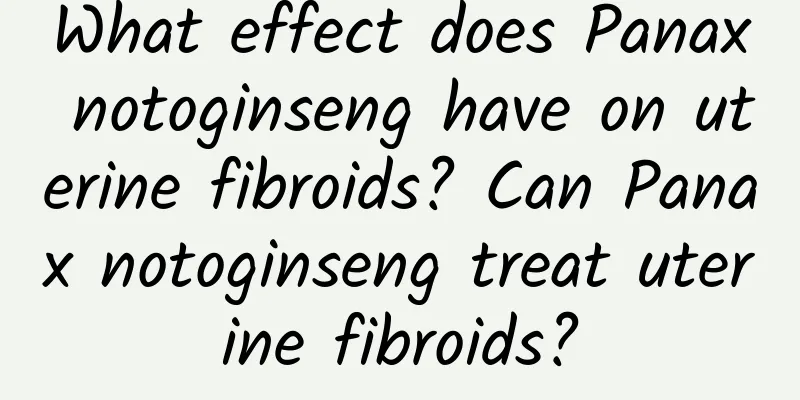What are the symptoms of adnexitis?

|
When adnexitis is inflamed, symptoms such as lower abdominal pain, abnormal vaginal discharge and fever may occur, which can be relieved through medication, physical therapy and lifestyle adjustments. Adnexitis is usually caused by bacterial infection, and common pathogens include gonococci, chlamydia, etc. The infection routes include ascending infection, blood transmission and spread of inflammation to adjacent organs. 1. Lower abdominal pain is a typical symptom of adnexitis, which manifests as persistent or intermittent dull pain, which can radiate to the lumbosacral region in severe cases. The degree of pain is related to the extent of inflammation, and the pain is more obvious when both sides of the adnexa are affected. The pain is severe in the acute phase, and manifests as dull pain or a feeling of heaviness in the chronic phase. The pain may be accompanied by sexual intercourse pain or urination discomfort. 2. Abnormal vaginal discharge is manifested by increased secretion, color change or abnormal odor. In acute adnexitis, the vaginal discharge is purulent or bloody, and in the chronic stage it is yellow or yellow-green. Some patients may experience vulvar itching or burning sensation. Abnormal vaginal discharge is the result of increased glandular secretion caused by inflammatory stimulation. 3. Fever is a manifestation of systemic inflammatory response. The body temperature can rise to above 38°C, accompanied by systemic symptoms such as chills and fatigue. Fever is obvious in acute adnexitis, and can be manifested as low-grade fever or normal body temperature in the chronic stage. The degree of fever is related to the severity of inflammation. Severe infections may cause persistent high fever. In terms of drug treatment, antibiotics are the main treatment method, and commonly used drugs include ceftriaxone, azithromycin and metronidazole. Physical therapy can use hot compresses, infrared irradiation and other methods to relieve pain. Lifestyle adjustments include keeping the vulva clean, avoiding excessive fatigue and sexual hygiene. In terms of diet, it is recommended to consume more foods rich in vitamin C, such as citrus fruits, to enhance immunity. Regular gynecological examinations can help detect and treat adnexitis early and prevent chronic inflammation. The symptoms of adnexitis need to be taken seriously. Seeking medical attention promptly and following the doctor's advice is the key to relieving symptoms and preventing complications. Maintaining good living habits and hygiene habits can help reduce the risk of recurrence of adnexitis and maintain the health of the reproductive system. |
<<: TCM name for secondary amenorrhea
>>: How to treat endometriosis with drugs
Recommend
Two aspects of TCM etiology of senile vaginitis
Senile vaginitis belongs to the category of "...
What causes cervicitis?
Cervicitis is a common gynecological disease char...
The harm of long-term treatment of bacterial vaginosis
What harm will bacterial vaginosis cause if it is...
Threatened abortion bleeding symptoms
The symptoms of threatened abortion are usually a...
Will early miscarriage occur if ovarian cysts are detected during pregnancy?
Will early miscarriage occur if ovarian cysts are...
Habitual abortion cure rate
Although miscarriage is very harmful, there are m...
Experts explain the causes of dysmenorrhea
Dysmenorrhea is a disease that many women are wor...
What to eat to treat pelvic peritonitis
We all know that diet is very important after we ...
What is the main treatment method for miscarriage caused by cervical relaxation?
Cervical incompetence and cervical relaxation are...
Can’t eat starch to lose weight? Don’t eat breakfast to lose weight? 5 good articles to help you crack
There are hundreds of ways to lose weight, but wh...
What are the consequences of untreated adenomyosis?
If adenomyosis is not treated, it can lead to pro...
What is the treatment for mild cervical erosion? Mild cervical erosion is suitable for treatment with two methods
In daily life, many women who suffer from cervica...
If you can’t lose weight by running, be careful that you may be suffering from muscle-less obesity!
[Key Points]: Why can’t I lose weight even though...
Jian Manshu spent three years losing 6 kg from 49 kg to show off her hot and sexy body! Revealing private exercise and diet secrets, girls please take notes
Jian Manshu showed off her hot body in the Taiwan...
Why is menstruation irregular after abortion?
Why is there irregular menstruation after abortio...









